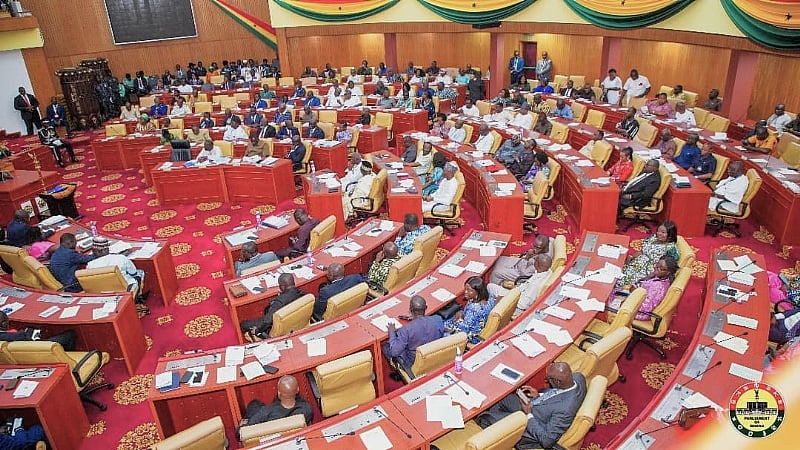The Parliament of Ghana has given its official approval, through ratification, to five significant mining lease agreements, paving the way for the extraction of gold and other valuable minerals across the country. These agreements represent a crucial step in harnessing Ghana’s mineral wealth for economic development, job creation, and revenue generation. The ratification process, overseen by the Mines and Natural Resource Committee of Parliament, underscores the government’s commitment to responsible resource management and adherence to legal frameworks governing mining operations. The agreements cover diverse geographical areas, spanning multiple regions and districts known for their mineral deposits.
One of the key agreements involves Newmont Golden Ridge Limited, granting them the right to mine gold in the Akyem East and Akyem West areas within the Birim North District of the Eastern Region. Newmont, a globally recognized mining company, brings significant experience and investment capacity to the project, promising substantial economic benefits for Ghana. Another agreement focuses on the Damang mine in the Wassa West District of the Western Region, operated by Abosso Goldfields Limited. This mine represents an established gold production site with potential for further expansion and increased output.
Gateway Exploration Limited secured a mining lease for gold exploration and extraction at Obobetwao, also located in the Birim North District of the Eastern Region. This venture represents an opportunity for a smaller company to contribute to Ghana’s mining sector, diversifying the landscape of operators and potentially fostering competition. GBF Associate Ghana Limited received approval to mine gold and other unspecified minerals in Ntotroso, situated within the Asutifi North District of the Ahafo Region. This agreement highlights the potential for extracting a diverse range of minerals, expanding beyond gold to capitalize on other valuable resources within Ghana’s geological formations.
The parliamentary ratification process ensured that these agreements align with the constitutional and legal provisions governing mining activities in Ghana. Article 268 of the 1992 Constitution and Section 54 of the Mining and Minerals Resources Act, 2006 (Act 703) provide the legal framework for such agreements, ensuring transparency, accountability, and adherence to established procedures. The Minister of Lands and Natural Resources, Emmanuel Armah-Kofi Buah, emphasized the positive economic implications of these ratified agreements, highlighting their potential to generate significant revenue for the government and create much-needed jobs for local communities.
The anticipated revenue influx from these mining operations is expected to bolster government coffers, providing resources for public services and infrastructure development. Job creation within the mining sector and related industries will contribute to poverty alleviation and economic empowerment in the affected regions. Furthermore, the agreements are expected to facilitate technology transfer and skills development for Ghanaian workers, fostering local expertise in mining operations and related technical fields. This transfer of knowledge and skills is considered crucial for sustainable development and long-term economic growth within the mining sector.
Beyond the direct economic benefits, the mining lease agreements include provisions for community development initiatives, designed to address the social and environmental impact of mining activities. These initiatives often involve investments in local infrastructure, education, healthcare, and environmental protection programs. By incorporating such measures, the government aims to ensure that mining operations contribute positively to the overall well-being of host communities, mitigating potential negative impacts and fostering a more sustainable and equitable development model. The agreements represent a significant step towards leveraging Ghana’s mineral wealth for national development, with a focus on responsible resource management and community engagement.


